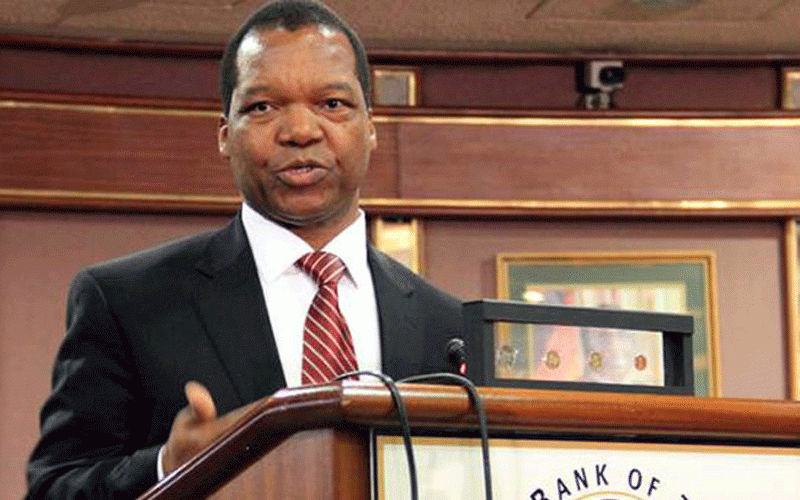
THE Reserve Bank of Zimbabwe (RBZ) says it plans to review a series of tough policies during the first quarter of 2023, although the central bank chief, John Mangudya’s post monetary policy committee (MPC) meeting statement was non-committal about the direction that he wants to take.
A highlight of the RBZ’s hawkish monetary policy stance — which combines an aggressive open market operation to fight inflation and money supply growth — was hiking the policy rate to 200% mid-year, from 80%. This rate resonates with triple digit annual inflation rates that have haunted markets for long.
But it has triggered disquiet across industries, with banks warning of potentially disturbing cuts in interest income.
Industries have slammed policymakers for effectively closing taps to vital funding, which companies want as the economy tanks.
This action has been compounded by high foreign currency retention thresholds being pursued by the RBZ.
In the past four years, exporters have complained that the high thresholds suck everything out of their cash vaults, leaving them with very little to acquire equipment and raw materials.
On Monday, the RBZ did not disclose if policymakers were ready to apply brakes and push back on relentless battles to tame inflation, or if they will ignore growing unease and tap harder on the accelerator.
But Mangudya said industries will have to endure the pain, possibly until the end of March 2023, when the MPC meets to review how the situation will be panning out.
- Mangudya speaks on banks’ stability
- Mangudya speaks on banks’ stability
- Monetary measures spur exchange rate stability: RBZ
- RBZ blocks Harare US dollar charges
Keep Reading
“The committee was pleased with the improved business confidence owing to the prevailing stability in the economy,” Mangudya said, referring to a slowdown in annual inflation to 255% last month, from 285% in August.
“Against that background, the committee unanimously agreed to stay the course of a tight monetary policy until the first quarter of next year and resolved… to maintain the bank policy rate and medium-term lending rate at current levels of 200% and 100%, respectively, and to review the interest rates in the first quarter of 2023 as dictated by inflation developments.
“(The MPC resolved to) further liberalise the foreign exchange market in the first quarter of 2023 and to enhance efficiency in the operation of the foreign exchange auction system and the willing-buyer willing-seller foreign exchange mechanism, to continue supporting the productive sectors of the economy through the medium-term lending facility (which the bank will increase in 2023 from the current limit of ZW$10 billion to ZW$20 billion) under which micro, small and medium enterprises, individuals and the productive sectors of the economy can borrow at interest rates applicable from time to time and to review the foreign currency retention thresholds on exports and domestic FCAs during the first quarter of 2023 in line with improved efficiency of the foreign exchange trading systems in order to sustain the current growth trajectory in foreign currency receipts,” Mangudya noted.
Economic analysts said with inflation slowing down, the central bank may soften its stance. But this will depend on how the unpredictable economy reacts to both monetary and fiscal policies recently announced.
“It will all depend on how the economy reacts,” head of strategy at Trade Winds Tapiwa Sibanda said.
“Remember there have been unforeseen developments like the shutdown of Kariba power plant. Inflation may be falling, but this is an artificial rate. The real rate will be seen once government lifts its current stance of payments to suppliers.”
The RBZ has reacted to shocks in the same way central banks worldwide have moved to confront a high costs build-up throughout 2022.
But on Tuesday, the Bank of International Settlements (BIS) said central banks could be forced to assist vulnerable parts of economies, undermining their attempts to fight inflation.
In the same way Mangudya wants to pour more funding into the medium-term facility, BIS said policymakers could be pushed into injecting liquidity into financial markets during a period when they have been struggling to deal with price pressures.











